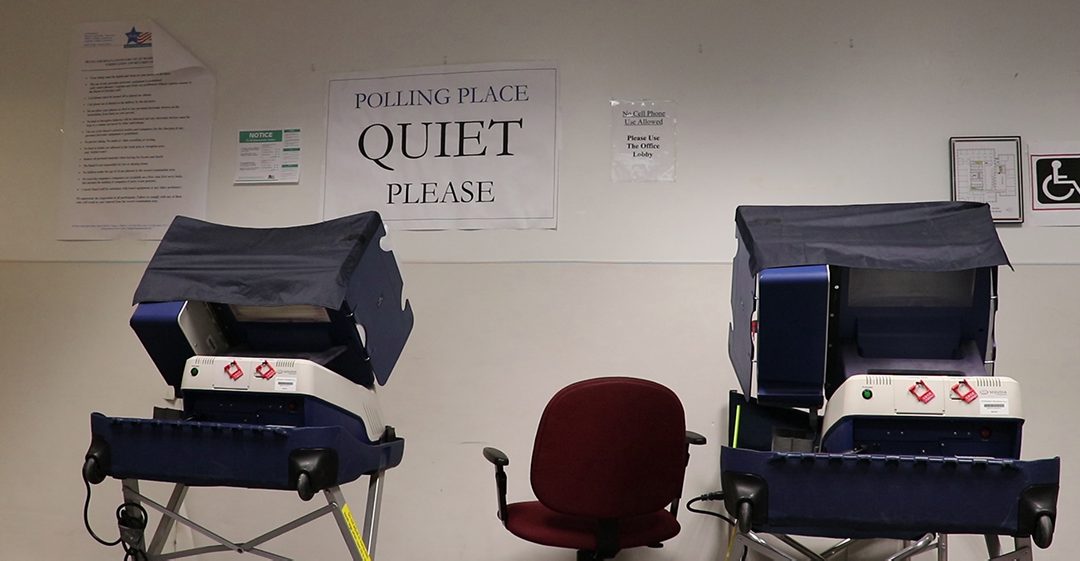WASHINGTON – From ballot boxes in California to polling stations in Maine, from counties in Oregon to cities in Florida: more and more voters across the nation will rank their preferred candidates during this year’s elections.
Now, Democrats in Congress and election reform advocates hope the growing adoption of the candidate-ranking system will draw attention to a stalled House bill that would implement the procedure for federal races nationwide.
“It’s one of these unique moments in time when having significant changes in the United States electoral system… is achievable. I wouldn’t be surprised if major changes happened,” said Rob Richie, Executive Director of FairVote, an advocacy organization campaigning for widespread adoption of ranked choice voting.
On a ranked choice ballot, voters select their preferred candidate, then their second choice, third choice and so on. First choice votes are counted and if there is not a majority winner, the candidate with the lowest number of votes is removed from the race. Those who gave that candidate their first choice pick have their votes redirected to their second choice. The process is repeated until a candidate has a majority of the vote and is declared the winner in a procedure similar to an instant runoff.
Maine will be the latest location to implement the RCV system when voters use it for the first time on primary ballots in June. The adoption there comes after two-year legal battle that followed voter approval of a referendum in 2016.
San Francisco, Oakland, and Minneapolis are among the roughly two dozen cities across the United States that have used this type of electoral reform on a municipal level.
Voters in Santa Fe, New Mexico, just started using the system in March to elect their mayor, city council, and a municipal judge. The state’s capital city saw a “remarkable” increase in voter engagement, according to Maria Perez, Director of FairVote New Mexico.
“The last mayoral election in 2014 we had 29 percent voter turnout, and in our recent election last month we had over 38 percent voter turnout,” said Perez.
Democrats in the U.S. House, currently in the minority, think the growing adoption and increasing voter familiarity with RCV will boost the chances of the Fair Representation Act, which would mandate the use of ranked choice voting in federal races, as well as overhaul the way congressional districts are drawn by implementing independent redistricting commissions.
The bill was introduced in June by Rep. Donald Beyer., Jr-D-Va., but has not advanced in a body where legislation offered by the minority party rarely even gets a committee hearing. And chances of passing major legislation involving voting is further diminished by the fact that Congress rarely passes substantive legislation in the months leading up to midterm elections.
Supporters of the bill see it as a chance to unravel what they see as an unfair advantage for incumbents.
“The trouble with incumbency is, most people who are already elected think that whatever bizarre system that got them elected is nearly perfect,” said Rep. Jim Cooper (D- Tenn.), one of the bill’s co-sponsors.
A study released earlier this month by The University of Maryland, conducted online between September and October, found that 55 percent of those surveyed recommend that their member of Congress vote in favor of ranked choice voting.
Democrats think the legislation will get attention when several cases involving redistricting reform go before the high court.
On Tuesday, the Supreme Court is set to hear arguments on a pair of cases that could permanently alter redistricting and decide how far legislatures can go in using partisan considerations to influence a district’s boundaries.
The University of Maryland survey found 66 percent of Americans across party lines are in favor of redistricting by citizen commission.
According to the Fair Representation Act, such commissions would be composed equally of Republicans, Democrats and Independents and reflect the balance of gender, race, ethnicity and geography of each state.
As for ranked choice voting, it can be a divisive topic even where it’s been implemented.
Mary Mayhew, a Republican gubernatorial candidate in Maine and a former Health and Human Services commissioner in the state, vehemently opposes the method.
“This rank choice voting thing is a scam and should be repealed immediately. It should never see the light of day. It is probably illegal and it is definitely a confusing mess,” said Mayhew.
“I have no doubt that if it is used in [Maine’s] primaries it will end up being challenged in court.”


